|
|
|
Книги Townshend Charles

|
This book charts a path through the outpouring of efforts to understand and explain modern terrorism, by asking what makes terrorism different from other forms of political, military action; what makes it effective; and what can be done about it. It unravels complex central questions such as whether terrorists are criminals, whether terrorism is a kind of war, what kind of threat terrorism represents, how far media publicity sustains terrorism, and whether democracy is especially vulnerable to terrorist attack. It examines the historical ideological and local roots of terrorist violence, and the success of specific terrorist and anti-terrorist campaigns in the more distant as well as the recent past. |

|
This is a gripping narrative of the most critical years in modern Ireland's history — from Charles Townshend, author of Easter 1916. The protracted, terrible fight for independence pitted the Irish against the British and the Irish against other Irish. It was both a physical battle of shocking violence against a regime increasingly seen as alien and unacceptable and an intellectual battle for a new sort of country. The damage done, the betrayals and grim compromises put the new nation into a state of trauma for at least a generation, but at a nearly unacceptable cost the struggle ended: a new republic was born. Charles Townshend's Easter 1916 opened up the astonishing events around the Rising for a new generation and in The Republic he deals, with the same unflinchingly wish to get to the truth behind the legend, with the most critical years in Ireland's history. There has been a great temptation to view these years through the prisms of martyrology and good-and-evil. The picture painted by Townshend is far more nuanced and sceptical — but also never loses sight of the ordinary forms of heroism performed by Irish men and women trapped in extraordinary times. 'The author has devoted his life to the study of Irish history and this huge work is the pinnacle of his labours' John Banville on Easter 1916. |
|